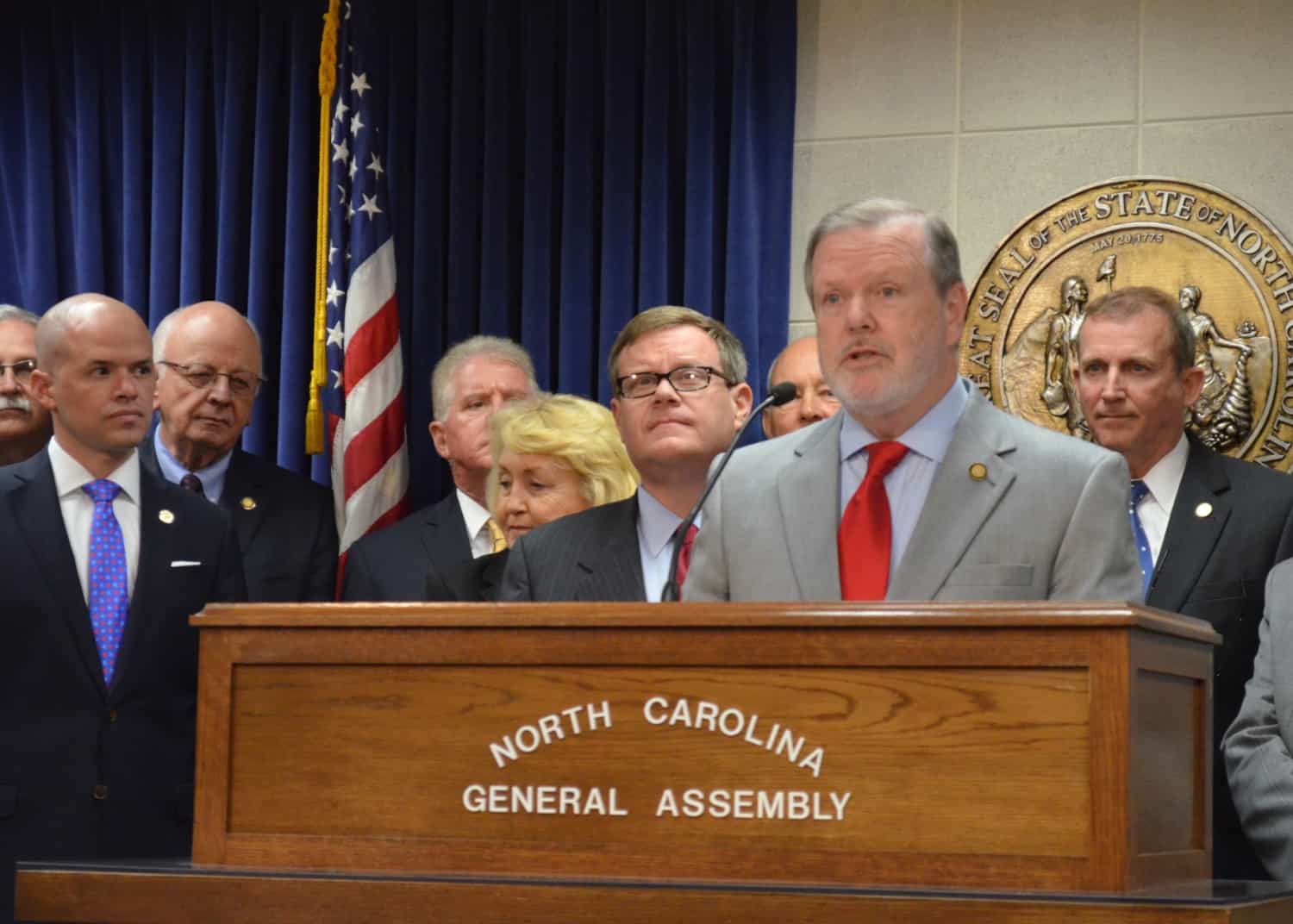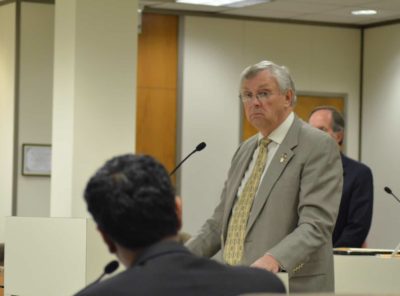House and Senate Republicans gave highlights of their 2017-19 budget plan, including almost $700 million more for public education over two years. The final proposal includes a 3.3 percent average salary increase for teachers in the first year and 9.6 percent over the two years of the biennium.
“This agreement we’re announcing today reaffirms our commitment to continue our years-long effort to dramatically increase teacher pay and invest generously in public schools,” said Senate President Pro Tempore Phil Berger, R-Rockingham.
The full budget has not yet been released.
The teacher pay proposal is weighted in favor of experienced teachers and includes both a step increase as well as $5 million in each year that can go towards bonuses for these teachers.
“So they get two pieces of the pie in this particular budget,” said Sen. Majority Leader Harry Brown, R-Onslow.
Under the Senate’s original proposal the average teacher pay raise was 3.7 percent in the first year and 9.5 percent over the biennium. Beginning teachers and teachers with 25 or more years of experience would not have received raises. Teachers with nine to 14 years would have received the largest salary increases.
Under the House plan, the average teacher salary increase would have been 3.3 percent in 2017-18 and between 9 and 9.5 percent over the biennium, but they were more heavily weighted towards teachers later in their careers.
The budget compromise also includes a plan to let “highly-qualified” new teachers start higher on the salary schedule if they “accept positions in low-performing schools, are licensed in special education or STEM classes or meet other criteria,” according to a press release.
The plan includes $25 million additional dollars for a bonus program, based on performance, that goes to the best 4th and 5th grade reading teachers and 4th and 8th grade math teachers.
The budget includes money for principal pay increases that will mean an average 8.6 percent salary increase for principals over two years and 13.4 percent average salary increase for assistant principals over the biennium. The plan also includes performance bonuses for principals.
Lottery funds will be used in the budget to give $100 million over two years to “economically struggling, rural counties,” for school buildings.
The proposal includes language about the General Assembly’s “intent” to use data to fund a new allotment to pay for salaries for enhancement teachers — music, arts, physical education — starting in 2018-19.
Last year’s budget mandated class size restrictions that were supposed to go into effect this coming school year. The restrictions eliminated flexibility that local school systems used to fund enhancement teachers. House Bill 13 delayed full implementation of those restrictions until the 2018-19 school year, but some districts worry that the state will not give them funding for enhancement teachers going forward.
The budget includes money to eliminate about 75 percent of the waiting list for NC Pre-K. The House version of the budget would have eliminated the waiting list, while the Senate version would have added about 1,150 slots in the first year of the biennium and 2,350 slots in the second year.
The budget also includes funding for the revamped Teaching Fellows Program, which provides scholarships to students who promise to teach in science, technology, engineering, math, or special education in state public schools. This was included in both the Senate and House versions of the budget.
The proposal restores funding to Eastern North Carolina STEM, a program cut from the Senate budget in a late night amendment, and the Governor’s School of North Carolina is not eliminated under the budget proposal.
The State Department of Public Instruction (DPI) will receive reductions under the budget compromise. According to staff of Rep. Nelson Dollar, R-Wake, the senior chair of the House Appropriations Committee, DPI would be cut 6.2 percent in the first year and 13.9 percent total over the biennium. The proposal would also include $1 million for an audit of of DPI that will increase the total two-year cut to 15.8 percent.
Berger said that the General Assembly budget and Governor Roy Cooper’s budget have many of the same funding priorities — including in health, education and public safety — and that Cooper should approve of it.
“Today we call on Governor Cooper to support this plan that achieves what he has said are important priorities for the state,” he said.
The Governor’s office sent out a press release this evening giving Cooper’s position on the proposed budget compromise.
“While we wait for details, the budget outlined by legislative leaders continues to shortchange education, economic development, and middle class families in favor of more tax giveaways that help the wealthy and large corporations,” he said in the release. “Those are the wrong priorities.”
Republican lawmakers said a full budget will be posted tonight or tomorrow. Votes could start in the Senate as soon as tomorrow.



